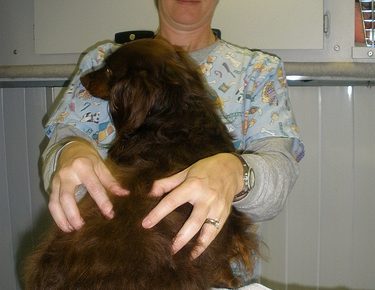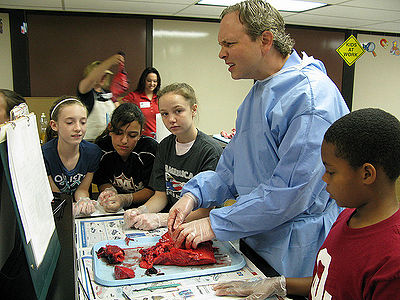
Your dog’s and cat’s diet needs to include certain nutrients for growth and on through adulthood and aging. There are many high quality pre-packaged pet foods that provide these nutrients and also cater to special needs. However, many of us want to feed homecooked diets. And many of us have pets with special needs and feel homecooking can provide quality ingredients in the correct amounts to fulfill those needs.
Homecooked meals can be prepared in large amounts ahead of time and frozen in portion sizes. Uneaten food should not be left out as it will spoil. Vegetables can be steamed, then mashed or pureed. Fruits can be eaten raw or you can choose canned in their own juice with no added sugar. You can make a broth to flavor food with leftovers such as meat drippings, soup and/or chicken or meat bones. Remove any bones from food before serving. Adding supplements should be done at the time food is served.
Here are some supplements you can add to your pet’s diet.
- Fish oil, particularly salmon oil, is an excellent source of Omega 3.
- Vitamin/mineral supplements can be given daily.
- If your pet has a sensitive stomach, probiotics can help. Natural bonemeal or bonemeal tablets are another addition. Or you can use eggshells. Wash them thoroughly, bake for about 10 minutes and then crush them.
- Brewers yeast is high in B vitamins as well as other nutrients and has been known to help stop flea infestation.
- Taurine should be added to your cat’s diet.
- Green foods such as barley grass are good for your pets.
- There are additional supplements for special needs pets.
When purchasing supplements be sure to get the highest quality. A holistic vet can recommend natural supplements for your particular pet and advise you as to dosage.
Proteins should make up the highest percentage nutrient in your pet’s diet. Some pets insist on the same protein source while others will want variety. Try any of these, removing all bones before serving – meat, cubed or chopped, chicken, turkey, duck, venison, liver, hearts, fish (remove bones except from canned sardines, tuna or salmon).
Carbohydrates can include sweet potatoes, carrots, broccoli (in small amounts), green beans, peas, pumpkin, squash, apples, pears, banana, melon. Remove seeds from apples and pears. Choose canned fruits in their own juice without added sugar.
Other carbs such as grains like oats, barley, brown rice, quinoa, small whole wheat pastas. Note: Cats cannot utilize plant proteins the way humans and dogs do, so carbs make up a small amount of their diet. And keep in mind that cats are true carnivores but will enjoy a small amount of carbs added to their diet.
Ça
Pets enjoy dairy products such as yogurt, cottage cheese, cheddar cheese, goat cheese, in small amounts and cooked eggs. Cats enjoy a bit of goat’s milk (not cow’s milk).
Your pet needs fats as well – salmon oil, canola oil, safflower oil, cod liver oil.
After experimenting and discovering what your pet’s preferences are, you can try adding ingredients and leaving others out. Observing your pet will let you know their likes and dislikes. You’ll be helping your pet live a long, healthy, happy life.
Special Diets
- Diets for Aging Pets
- Diets for Pets with Allergies
- Diets for Pets with Arthritis
- Diets for Pets with Cancer
- Diets for Pets with Diabetes
- Diets for Pets with Heart Disease
- Diets for Pets with Kidney (Renal) Disease
- Diets for Pets with Liver Disease
Here are some sample recipes:
- Celebrate National Dog Biscuit Day
- Home Made Chicken Jerky
- Recipes for Cats with Diabetes
- Recipes for Cats with Kidney or Liver Disease
- Recipes for Dogs with Arthritis and Other Immune Deficiency Diseases
- Recipes for Dogs with Diabetes
- Recipes for Dogs with Heart Disease
- Recipes for Dogs with Kidney or Heart Disease
- Recipes for Sick Pets
Adjust amounts in all recipes depending on your pet’s weight.



